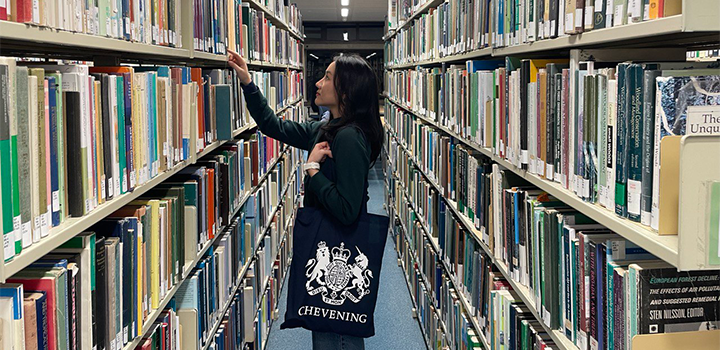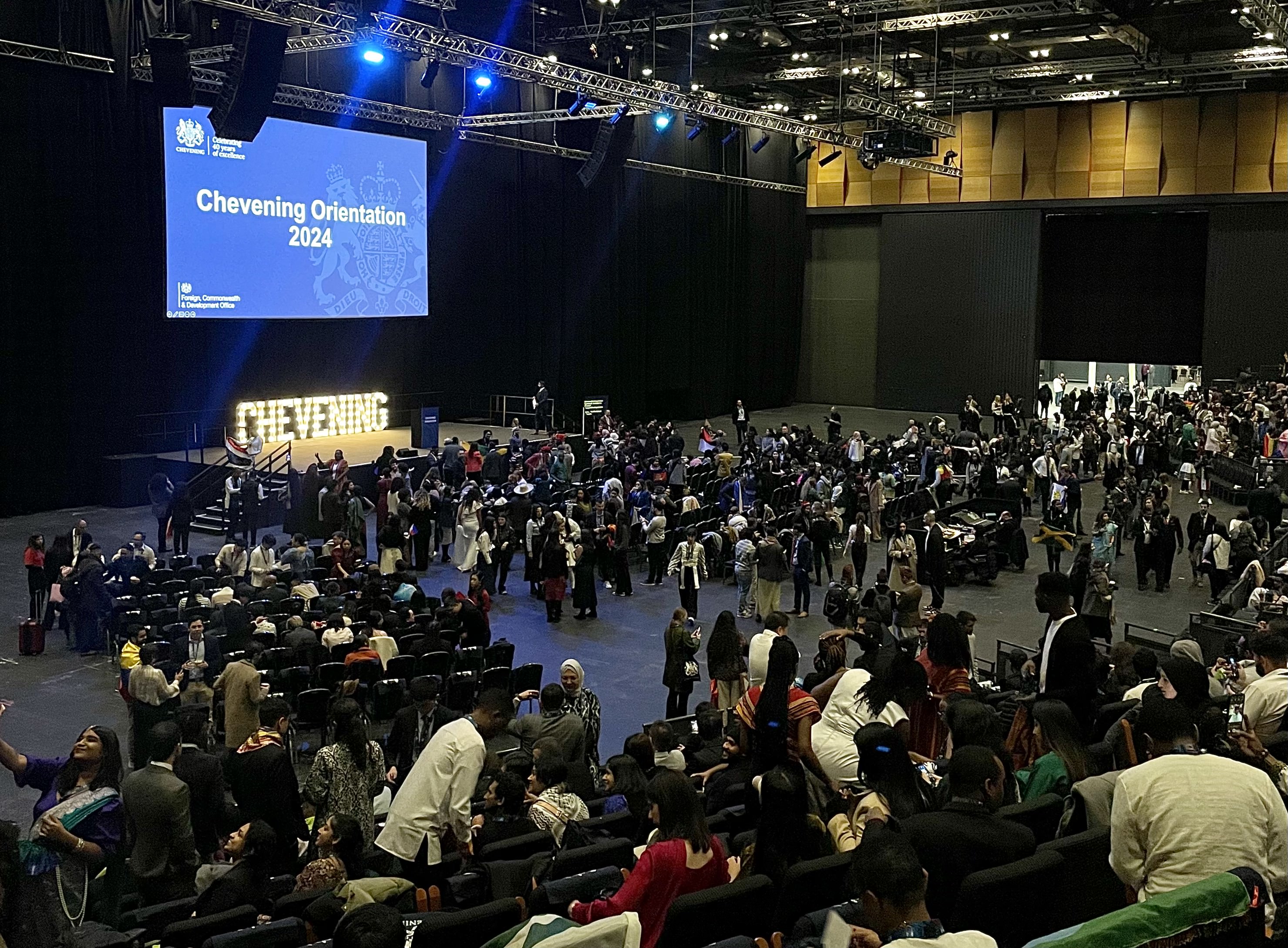Gaining knowledge, giving back – meet the global talents studying at UEA
By: Natalia Makohon

Natalia Makohon, an MA Broadcast and Digital Journalism student at UEA, is a Chevening Scholar from Ukraine. She shares the positive stories of other Scholar students at the University who, alongside their studies, spend time volunteering in the wider Norfolk community:
14 Chevening Scholars from around the world joined the University of East Anglia (UEA) this year, selected from almost 70,000 applicants and representing the top 2% of the best candidates.
Beyond academics, these Scholars actively engage with the Norfolk community, contributing through volunteering, part-time work, and cultural exchange.
Chevening is the UK Government’s international awards scheme. For more than 40 years, they have supported exceptional individuals to make a positive global impact.
 Image: International scholars at UEA volunteer with Girlguiding and Oxfam, supporting gender equality and tackling poverty (credit: Natalia Makohon)
Image: International scholars at UEA volunteer with Girlguiding and Oxfam, supporting gender equality and tackling poverty (credit: Natalia Makohon)
Kulasinee Pipattanasookmongkol
Kulasinee Pipattanasookmongkol, a Chevening scholar from Thailand, is studying Global Development at the University, which ranks in the top 20 worldwide in this field.
She started volunteering with Girlguiding in Norwich at the beginning of the semester. This organization is the UK’s largest youth organisation dedicated completely to girls, between the ages of four and eighteen.
Kulasinee thinks it is essential to educate young girls about gender equality: "They will grow up to be strong, independent women who can live their lives better than the past generation.
"I am also different here. I am an Asian here, and I hope the girls will learn about the difference between me and them. I hope they think it's normal to have friends who are different from them.
"For me, it's very nice to see that people here value gender equality. In Thailand, people will think that gender equality is not a serious topic, and the girl's community is not that necessary.
“So, I feel I'm in the right place because I value the same thing with them. I feel more confident.”
Nsa Uwakmfon
While Kulasinee focused on empowering young girls, Nsa Uwakmfon, another Chevening Scholar from Nigeria, concentrated on tackling poverty and “serving humanity”.
Nsa works part-time as a retail assistant at Oxfam, a non-profit organisation: “Any time I'm working and I see people walk in to buy things… there's this fulfilment I have that the money is going back to people who do not have, the less privileged, that this money is going back to helping the community.
“There’s this joy I have – giving my time to serve humanity – and there’s a sense of community and a sense of fulfilment.”
Nsa also noted the flexibility of the UK working culture, contrasting it with Nigeria:
"I've built new friendship, new family, new relationships, and it's really amazing. I think they put humanity first, and I feel it's amazing to see. Possibly I could implement it in my own organisation when I get back.”
The importance of international scholars
A key condition of this programme, fully funded by the UK government, is students returning home for two years to apply their knowledge and experience.
Craig Smitherman, Head of International Recruitment at UEA, highlighted the importance of international scholars: “The value that they bring, both to the University and that they take away, is unmatched compared to many other schemes or programmes where students come [to study in the UK].
"What is really strong and really great that we see, is the whole diversity of different [Chevening] students coming [to UEA], both in terms of the subjects they’re coming to study and also certainly the places they’re coming from.
“They are really well spread across the globe.”
This year, UEA hosts students from countries such as Morocco, Indonesia, Ukraine, Thailand, Turkey, Nigeria, and more.
According to research by the Higher Education Policy Institute (HEPI), international students in the 2021/22 academic year contributed £41.9 billion to the UK economy, with their spending supporting jobs and services in local communities.